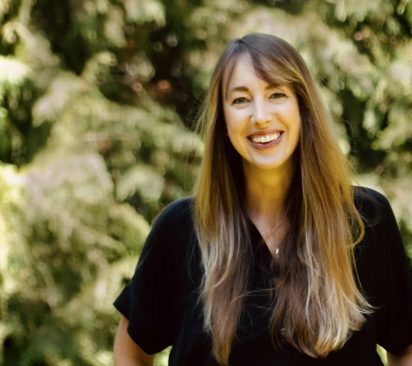
Q&A with Tanya Eison
How did SMEA first come across your radar? What were your impressions of the program?
SMEA first came across my radar while I was on campus to attend a symposium for the Doris Duke Conservation Scholars Program in the fisheries building. My boss at the time invited someone from the university to come talk to the interns from Quinault about opportunities at UW, which also included graduate school.

Q&A with Olivia Zimmerman
Why did you decide to pursue a Master of Marine Affairs?
My journey to SMEA’s MMA program was a winding one. I never felt a clearly defined path to one field, but rather found myself vacillating between my interest in human psychology and my love of the natural world. I took several introductory courses in both fields during my early undergrad years, and ended up settling on a degree in psychology to study cognition and human decision making.

Q&A with Greg Papp
Why did you decide to pursue a Master of Marine Affairs?
I’ve always had an interest in the environment and environmental justice, but I was returning to school after 10 years away and thought my undergraduate degree (aerospace engineering) wouldn’t be suited to the biology-intensive environmental programs. Simply, I was nervous about whether there was a spot for me in the environmental science community.
Read more
Q&A with James Lee
Why did you decide to pursue a Master of Marine Affairs?
About ten years ago I started organizing back in my hometown in the San Francisco Bay Area, working on everything from anti-eviction campaigns to wetland protection campaigns and local election campaigns. When I went back to school some years later to finish my bachelor’s degree, I was excited to be thinking about and working in marine science again, but I was bummed that the policy and advocacy work I was doing had to take a backseat to my education.

Q&A with Lindsey Popken
Why did you decide to pursue a Master of Marine Affairs?
While working as an environmental consultant for industrial companies, I grew to respect the work but realized it was not for me. I was working on a sea otter-related thesis at UC Davis, but it was difficult to research a really interesting facet of marine affairs at a landlocked university!

Q&A with Katie Shelledy
Could you describe your experience in applying to and selecting a graduate program?
When I applied for graduate school, I was working as a junior acoustician with NOAA’s Northeast Fisheries Science Center. I looked at a bunch of schools and programs, and my main criteria were 1) interdisciplinary or multi-disciplinary ocean-focused program and 2) located in a coastal city. Most of my training and experience at that point was skewed toward natural science, and I had been living in kind of isolated areas for the past 6 years (college in central Pennsylvania and a 2-year research gig without a car in Highlands, NJ).

Q&A with Dr. Erendira Aceves Bueno
Why did you decide to become a professor?
I love science and academia has given me an immense freedom to explore the topics that interest me. Becoming a professor has allowed me to maintain a profession driven by curiosity while modestly contributing to solving pressing problems. I feel extremely lucky for that.
What do you like most about your work?
Many things, but I mostly enjoy facing intellectual challenges in collaboration with students.

Q&A with Kalloway Page
Why did you decide to come to UW’s SMEA for graduate school?
After graduating UW as an undergraduate I took a few years off to work as a seasonal environmental consultant to gain hands on professional experience in the marine science realm. I was interested in going back to grad school, but I wanted to make sure that I could make a living.

Q&A with Dr. Terrie Klinger
How did you decide to become a professor?
I don’t recall making a discrete decision to become a professor. I loved my undergraduate studies at UC Berkeley and benefited enormously from the mentorship of several faculty members there, particularly Paul Silva, John West, and GF Papenfuss. It seemed like the most natural thing in the world to move on to graduate school, where I had wonderful experiences at the University of British Columbia and at Scripps Institution of Oceanography.
Read more
Q&A with Corinne Noufi
Why did you decide to come to UW’s SMEA for graduate school?
I studied biology as an undergraduate, but it wasn’t until I took a conservation biology class that I began to understand how important the human dimension aspect of climate science is. Following this class, I traveled to Cambodia as part of a research project focusing on food web ecology and fisheries in the Mekong.